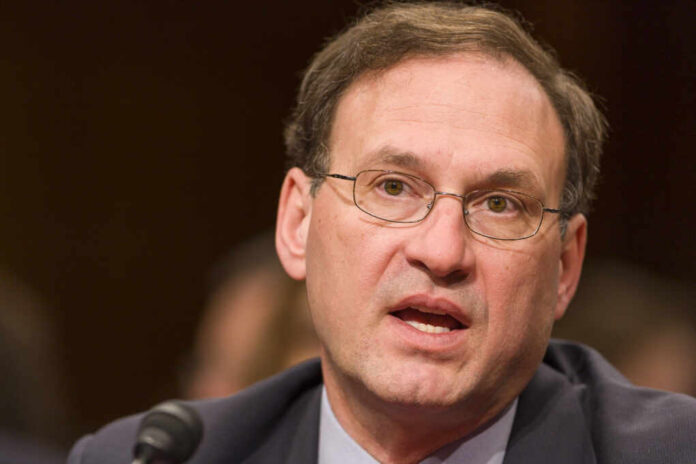
Justice Samuel Alito strongly dissented from a Supreme Court decision that dismissed lawsuits challenging the Biden administration’s communications with social media platforms regarding misinformation. Alito, supported by Justices Clarence Thomas and Neil Gorsuch, accused the administration of coercing Facebook to suppress free speech, calling it a significant First Amendment issue.
Justice Amy Coney Barrett, writing for the majority, dismissed the cases on the basis that the plaintiffs had no legal standing, thus sidestepping the free speech debate. Alito criticized this approach, stating that the Court shirked its duty to address a serious threat to the First Amendment. “For months, high-ranking Government officials placed unrelenting pressure on Facebook to suppress Americans’ free speech,” Alito wrote in his dissent.
The case, initiated by Republican state attorneys general and private plaintiffs, argued that the Biden administration’s efforts to moderate content related to COVID-19 and other topics constituted unconstitutional censorship. The administration maintained that its actions were merely encouragements and did not cross into coercion.
Alito rejected this defense, arguing that the White House’s actions amounted to more than just suggestions. He described Facebook’s response as that of a subservient entity trying to appease a powerful overseer. “If the lower courts’ assessment of the voluminous record is correct, this is one of the most important free speech cases to reach this Court in years,” Alito wrote.
The case was one of two decisions handed down by the Supreme Court on Wednesday, neither of which involved former President Trump’s high-profile immunity claim. The Court has yet to release opinions on 12 argued cases this term, with additional decisions expected in the coming days.
Alito’s dissent emphasizes the ongoing debate over the balance between government influence and free speech on social media platforms, marking a crucial discussion in contemporary First Amendment jurisprudence.














